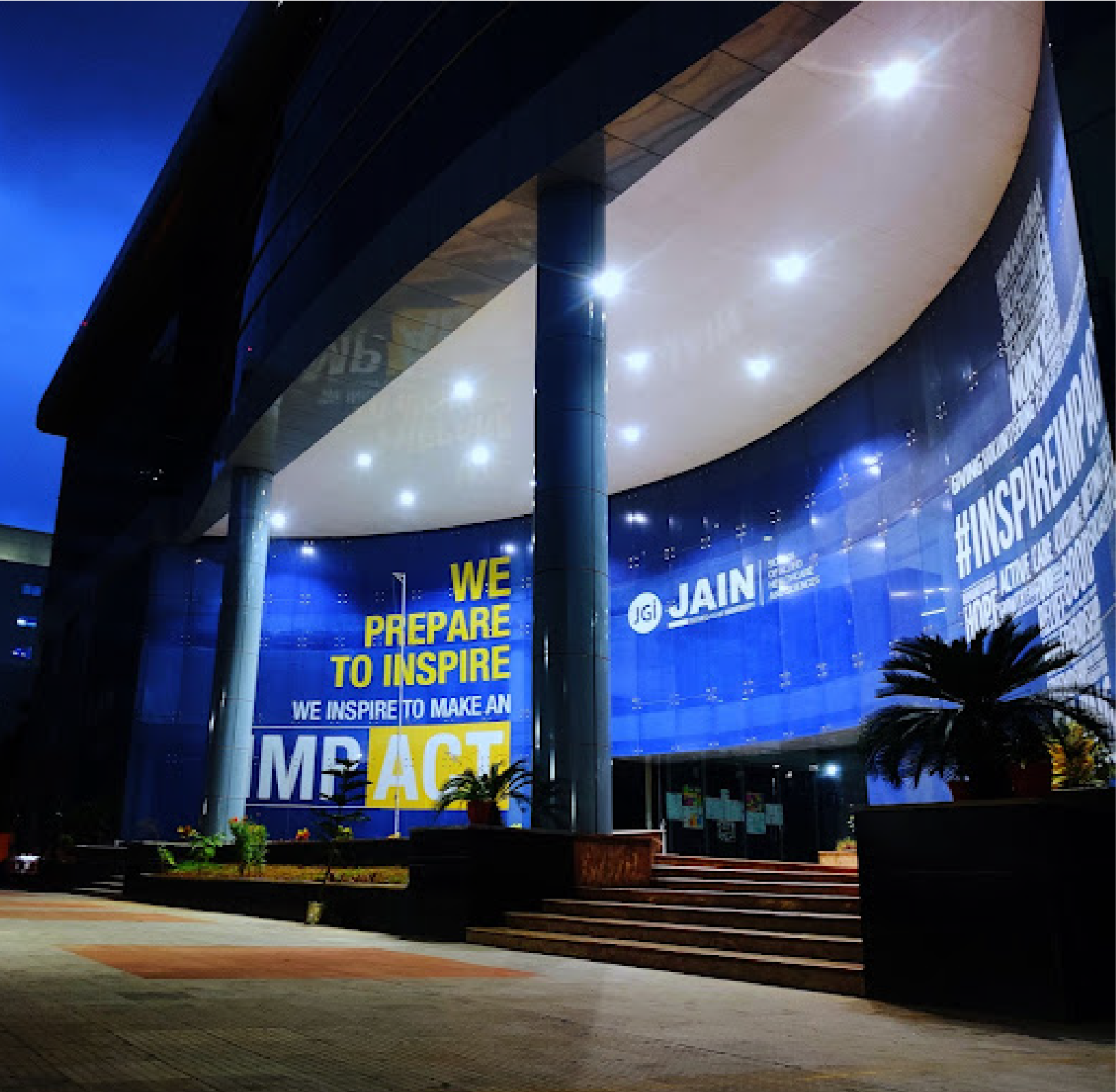B.Sc Cancer Biology Eligibility:
The minimum qualification for the BSc Cancer Biology program is a pass with 50% in the 10+2 examination from a recognized board, including PUC/ICSE/CBS/A Level/US 12th Grade or its equivalent, with individual subjects in Physics, Chemistry, and Biology, and must have successfully passed English. IB Boards with a minimum of 24 credits.
Contact us:
Phone Number: 9606978661, 6366828477
Email :sahs@jainuniversity.ac.in
Curriculum Structure:
Following is a comprehensive list of B.Sc Cancer Biology course syllabus, carefully curated to provide a balance between theoretical knowledge and practical applications:
| Semester |
Name of the subject
|
| Semester 1
|
- Cell And Molecular Biology-I
- Anatomy And Physiology
- Fundamentals Of Microbiology
- Lab Course – 1
- Computer Application
- English– I
|
| Semester 2
|
- Cell And Molecular Biology - II
- Basics Of Biochemistry And Enzymology
- Lab Course – II
- Legal Aspects Of Healthcare
- English-2
|
| Semester 3
|
- Human Genetics
- Basics Of Immunology
- Introduction To Cancer Biology
- Labcourse- III
- Healthcare Administration
- Environment Studies
- Communicative English
|
| Semester 4
|
- Genetic Engineering And Recombinant Dna Technology
- Cancer Mechanism And Therapeutics
- Infectious Disease
- Lab Course IV
- Indian Constitution
|
| Semester 5
|
- Cellular And Molecular Pathology
- Animal Tissue Culture And Clinical Trials
- General Pharmacology
- Bioinformatics
- Onco Virology
- Lab Course- V
- Internship
|
| Semester 6
|
- Research Methodology
- Biomedical Instrumentation
- Tumour Immunology
- Cancer Pathophysiology
- Molecular Biology Of Disease
- Internship
|
| Semester 7 and Semester 8
|
|
Project centric learning (PCL) and Mind management and human values (MMHV) also provided as add-on courses.
Studies after B.Sc Cancer Biology:
B.Sc Cancer Biology graduates have the opportunity to further specialise and enhance their knowledge through various advanced study options. Here are six to seven further study options:
Master's in Cancer Biology:
Pursue a Master's degree in Cancer Biology (M.Sc Cancer Biology) to deepen your understanding of advanced topics, engage in specialized research projects, and potentially qualify for leadership roles in academia, research, or industry.
Clinical Research Management:
Explore a postgraduate program in Clinical Research Management to gain expertise in designing, implementing, and managing clinical trials. This option is suitable for those interested in overseeing clinical research projects in the context of cancer treatments.
Biotechnology and Biomedical Sciences:
Enrol in a Master's program in Biotechnology or Biomedical Sciences to broaden your knowledge of advanced techniques and technologies in these fields. This option is beneficial for those aiming to work on the development of innovative cancer therapies or diagnostic tools.
Genomic Medicine or Genetic Counselling:
Specialize in Genomic Medicine or pursue a Master's in Genetic Counseling to focus on the genetic aspects of cancer. This path is suitable for individuals interested in understanding and communicating genetic information related to cancer risk and treatment.
Ph.D. in Cancer Biology:
Opt for a Doctoral program (Ph.D.) in Cancer Biology to conduct in-depth, original research in a specialised area of Cancer Biology. This path is ideal for those aspiring to become experts in the field and contribute significantly to cancer research.
These further study options after B.Sc Cancer Biology provides graduates with the opportunity to specialise, advance their careers, and contribute to the evolving landscape of biology and cancer in the healthcare industry. The choice of further study depends on individual career goals, interests, and the specific aspect of Cancer Biology one wishes to focus on.
Career progression after pursuing B.Sc in Cancer Biology:
| Duration |
Roles and responsibilities
| Salary |
| 0-3 years
|
Research Assistant/Technician
Clinical Research Coordinator
Biotechnologist
|
₹3 lakhs to ₹7 lakhs per annum
|
| 3-5 years
|
Clinical Research Scientist
Medical Science Liaison
Biomedical Sales Representative
|
₹7 lakhs to ₹12 lakhs per annum
|
| 5-10 years
|
Research Project Manager:
Clinical Research Manager
Healthcare Administration/Management:
|
₹10 lakhs to ₹18 lakhs per annum
|
| 10 years and beyond
|
Director of Cancer Research
Chief Scientific Officer (CSO)
Professor or Research Chair
|
Over ₹20 lakhs per annum
|
Please Note: Career progression can vary based on factors such as individual performance, continued education, and industry demand.
Salaries can significantly increase based on leadership roles and responsibilities. Figures are approximate and can vary based on factors like the size and reputation of the employer, the candidate's expertise, and the region of employment. Individuals may choose to pursue further studies (Master's or Ph.D.) at any stage to enhance their expertise and open up additional career opportunities.


